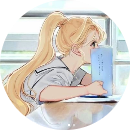Ôn thi vào 10
Các câu hỏi tương tự
1. We stayed at home because it ______very heavily yesterday. ( rain)2.What_____ you (do) ……. at 8 p.m yesterday?3. . My brother___________ the film ” Titanic” three times so far. ( see )4..I (do) …… my homework while Nick (watch)……….. TV last night.5.My mother _______ a hat for me last week(weave)6.My father ____ a lot of eggshells up to present.(carve )7.When He ___ a book, the light went out.(read)8. When he came , his friend (leave) the party .9. Nick ( lose)_____ his mobile phone. He cant f...
Đọc tiếp
1. We stayed at home because it ______very heavily yesterday. ( rain)
2.What_____ you (do) ……. at 8 p.m yesterday?
3. . My brother___________ the film ” Titanic” three times so far. ( see )
4..I (do) …… my homework while Nick (watch)……….. TV last night.
5.My mother _______ a hat for me last week(weave)
6.My father ____ a lot of eggshells up to present.(carve )
7.When He ___ a book, the light went out.(read)
8. When he came , his friend (leave) the party .
9. Nick ( lose)_____ his mobile phone. He can't find it.
10.. I think ten years from now, People (enjoy)___ gardening
11.She said she was too tired and ……..…………......... to go out for a relax. (want)
last night at seven,while we(have)..............dinner,the phone (ring)..................
31 . While i was having a shower , the telephone rang .a . while b . was having c . a shower d . rang32 . rice is most important plant in vietnama.rice b.is c.most d.in33. oxygen plays an important role in maintaining livea.plays b . an c. role d.live34. can you please help I to fill this application form ?a.can you b. I c. to fill d. this35 . you had better learning a foreign la...
Đọc tiếp
31 . While i was having a shower , the telephone rang .
a . while b . was having c . a shower d . rang
32 . rice is most important plant in vietnam
a.rice b.is c.most d.in
33. oxygen plays an important role in maintaining live
a.plays b . an c. role d.live
34. can you please help I to fill this application form ?
a.can you b. I c. to fill d. this
35 . you had better learning a foreign language before applying for a job
a.had better b.learning c. a d.applying
Most children are interested in (lie)..........in front of the tv to watch cartoons
Watching TV is a very popular pastime in the UK. But what kind of programmes do British people like to watch? Well, the most-watched TV programmes every week are very popular dramas that are usually on at least four times every week. They are dramas based in one neighborhood that try to depict ordinary life in the UK - we call these dramas soap operas or soaps. In the early days of TV, there were often dramas on during the day. Back in those days, it was traditional for the husband to go out to...
Đọc tiếp
Watching TV is a very popular pastime in the UK. But what kind of programmes do British people like to watch? Well, the most-watched TV programmes every week are very popular dramas that are usually on at least four times every week. They are dramas based in one neighborhood that try to depict ordinary life in the UK - we call these dramas 'soap operas' or 'soaps'.
In the early days of TV, there were often dramas on during the day. Back in those days, it was traditional for the husband to go out to work and for the wife to stay at home and look after the house and the children. Most of these daytime dramas were aimed at entertaining the housewives who would traditionally be at home, probably doing the washing. Companies selling washing powder would advertise their products at times when these dramas were on, and sometimes those companies would even sponsor the drama. Hence the word 'soap'.
So what about the word opera? Well, that's because these dramas are often an exaggeration of real life. They are supposed to represent ordinary lives but, to make them entertaining, lots of dramatic events, like murders, divorces, affairs etc., all happen probably much more regularly than they would in a normal neighbourhood.
Most soap operas these days are shown in the evening. Each show will have several different storylines happening at once that continue over several shows. The same cast members will appear in every show, too.
Question 1: : What type of programmes do British people prefer to watch?
A. drama series B. soap opera C. comedy D. musical
Question 2: Why did sponsors advertise soap on TV during the mornings?
A. Because most women were at home doing their housework and watching TV.
B. Because it was cheaper to advertise during the day.
C. Because there were only television programmes during the day.
D. Because advertisements were aimed at entertaining the housewives.
Question 3: The word “soap” in “soap opera” refers to ______.
A. the classical singing you hear in the drammas
B. products sold on television
C. washing powder used by housewives to do the washing
D. a musical play in which all of the words are sung
Question 4: According to the passage, soap operas ______.
A. are mostly shown in daytime
B. offer accurate depictions of ordinary life
C. have lots of continuing storylines happening over a few shows.
D. tend to focus on female characters
Question 5: Which of the following statements is NOT true?
A. British people don’t really like watching TV.
B. In the early days, dramas were often shown in daytime.
C. Soap operas are usually more exaggerated than normal life.
D. Each cast member will appear in some episodes.
1. I was very sleepy but I still wanted to watch the football match on TV.
Although ______________________________________________________________
2. “Do you know what the time is, Mary?” asked John.
John asked ____________________________________________________________
3. The teacher is introducing a new game.
A new _______________________________________________________________
4. I haven’t been in this village since May.
The last time ________________________________________...
Đọc tiếp
1. I was very sleepy but I still wanted to watch the football match on TV. Although ______________________________________________________________ 2. “Do you know what the time is, Mary?” asked John. John asked ____________________________________________________________ 3. The teacher is introducing a new game. A new _______________________________________________________________ 4. I haven’t been in this village since May. The last time __________________________________________________________
11. We had the phone ______________ because we are moving tomorrow. (CONNECT)12. The company has over 300 stores ______________. (NATION)13. Librarians spend a lot of time ______________ books . (CLASS)14. Jane is only 10 years old, but she cooks very ______________. (GOOD)15. Lan is a ______________ girl, so everyone likes her. (BEAUTY
Xem chi tiết
Exercise 3:1. When we came to the stadium, the match ______________ (already, begin).2. Don’t worry mom. I will phone you as soon as I ______________ (arrive) Paris.3. Mother ______________ (cook) some food in the kitchen at present.4. Martha ______________ (watch) TV at seven o’clock last night.5. Where your father ______________ (work) in 1985?6. Adrian ______________ (learn) the violin now.7. Before she watched TV, she ______________ (do) her homework.8. He ______________ (just see) her.9. Th...
Đọc tiếp
Exercise 3:
1. When we came to the stadium, the match ______________ (already, begin).
2. Don’t worry mom. I will phone you as soon as I ______________ (arrive) Paris.
3. Mother ______________ (cook) some food in the kitchen at present.
4. Martha ______________ (watch) TV at seven o’clock last night.
5. Where your father ______________ (work) in 1985?
6. Adrian ______________ (learn) the violin now.
7. Before she watched TV, she ______________ (do) her homework.
8. He ______________ (just see) her.
9. They ______________ (see) lots of animals in the zoo yesterday.
10. I ______________ (know) Jack when we ______________ (be) students but
I ______________ (not meet) him since we ______________ (leave) school in 1998.
11. We ______________ (make) a cake at the moment.
12. We ______________ (not have) a holiday last year.
13. Jane ______________ (watch) television at the moment.
14. By the time we got there, the play ______________ (start) already.
15. They ______________ (not start) the match until the rain stops.
16. You ______________ (see) Ann last week?
17. Pay attention! The teacher ______________ (explain).
18. I ______________ (play) tennis yesterday afternoon.
19. After they ______________ (go), I sat down and rested.
20. The film ______________ (end) by the time we get there.
____ the end we decided to stay in and watch a DVD
____ the end of the film they get divorced
The amorous couples usually sit ___ the back row of the cinema
The amorous couples usually sit ____ the back of the cinema



















